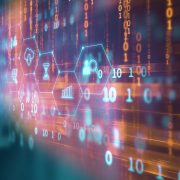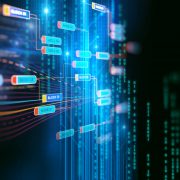The world may be filled with many prophets of doom and gloom as of late. But when we actually take a look at the state of our civilization, we find that things are actually getting better. Not only are people enjoying more wealth today than they have in previous eras of history, but technology is also empowering the individual in ways we have never seen before. The latest example of this comes from Sierra Leone, where blockchain technology is being incorporated with voting, to verify electoral votes.
A History of Corruption
Sierra Leone has had its fair share of troubles. In addition to a deadly mudslide and an outbreak of Ebola that killed thousands, the nation is still trying to recover from the deadly civil war that claimed the lives of 50,000 Sierra Leoneans. You can see, then, why so much was at stake during the elections that took place in early March.
While previous elections had been peaceful, there were acts of violence committed at political rallies leading up to the March elections, resulting in at least one death. Sierra Leone only gained its independence five years ago. And since its early years have been plagued by misfortune, its leaders were eager to find alternative solutions to traditional voting methods in order to guard against political unrest.
In the wake of President Ernest Bai Koroma stepping down after serving two five-year terms, the country is hoping for a peaceful transition of power. But Koroma’s legacy has been marked by allegations of corruption. In fact, during the Ebola outbreak, when 4,000 people lost their lives, it was discovered that $14 million of the funds allocated towards eradicating the virus had gone mysteriously missing. This obviously did not sit well with voters who had watched the virus claim the lives of loved ones.
To make matters worse, the government was also accused of ignoring certain warnings given about the possibility of mudslides. Specifically, human rights organizations claim that Koroma was warned to limit housing on eroding hillsides. Of course, these warnings were ignored and lives were lost, which did not reflect well on the President.
But due to the preexisting claims of corruption and a bloody civil war, the country tried something new this time around. To ensure that the voting, and the tallying of the votes, went as smoothly as possible, Sierra Leone became the first country to utilize blockchain technology to help verify votes and avoid fraud.
Blockchain Empowering the Individual Voter
Agora is a new Swiss company that promises to “bring voting systems into the digital age.” On its site, it describes itself as:
“Agora is a blockchain-based voting ecosystem allowing anyone anywhere to vote online from a digital device in a fully secure, easy and certain way.
Our end-to-end verifiable voting technology eradicates fraud and corruption by creating an immutable and publicly-viewable record of the election on a custom blockchain.”
And by utilizing blockchain technology, Agora helps to make elections tamper-proof, transparent, and private in geographic areas where peaceful elections do not always occur. This, in turn, helps to ensure that contentious elections operate as smoothly as possible.
In March, Agora’s services were provided at 280 polling locations within Sierra Leone’s Western District. Typically, the country’s National Electoral Commission is responsible for giving the final numbers. But this year, that responsibility was delegated to Agora. After the votes were in, each was read out loud and then stored on a joint, which is essentially a private blockchain network that can only be accessed by designated Agora employees. The votes were validated in real time and then posted on Agora’s site for the whole world to see.
This solves the age-old problem of voter fraud and manipulation by reducing human error, whether intentional or not.
Agora’s CEO, Leonardo Grammar stated:
“I strongly believe that this election is the beginning of a much larger blockchain voting movement.”
And while voting might not be the end all be all when it comes to safeguarding individual freedom, inhibiting big governments from meddling in elections serves to give further power to the individual by ensuring their unique vote is properly accounted for.
This is just the beginning of blockchain being utilized in elections, but in geographical areas where elections are synonymous with corruption, Agora offers a viable and affordable solution. Just imagine what would have occurred if this technology had been available during the Iranian elections in 2008? Agora is once again proving that through blockchain, individuals are empowered and governments are restrained.












